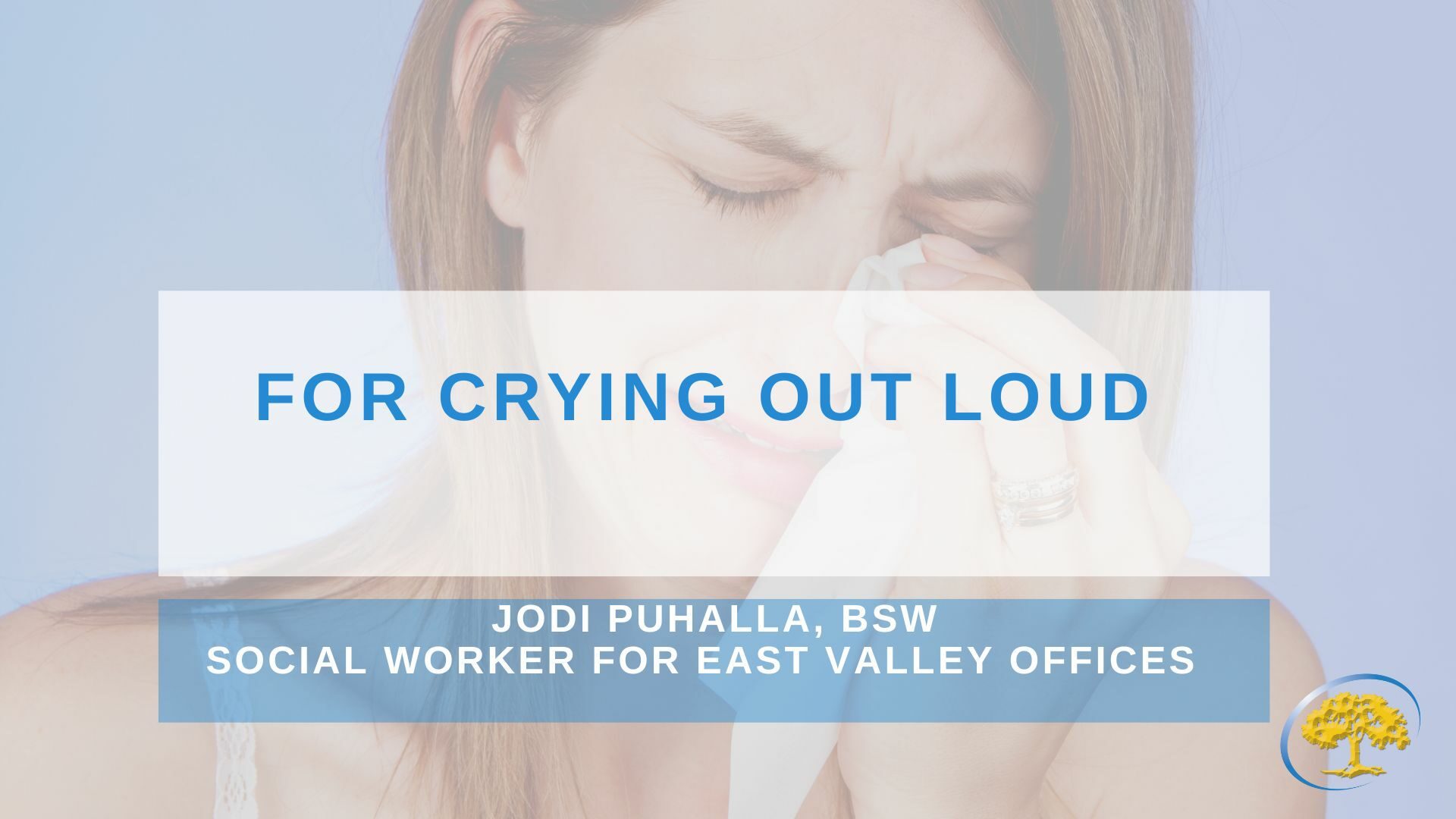
Posted 2 years ago
For Crying Out Loud
People coping with a cancer diagnosis often feel they need to be strong and protect others from emotions they are holding inside. There are often negative connotations surrounding the very human reaction of crying. This is unfortunate since there are many health benefits associated with it. The positive effects of releasing emotional tears are an evolving field of study. Current research suggests that crying can be very important for a human to do for a variety of reasons.
Creates Balance
Crying activates the parasympathetic nervous system slowing breathing and heart rate. It can create a sense of relief. When strong emotions come to the surface, crying helps restore one back to a balanced state. It is generally not instant relief — it takes a few minutes of crying and deep breathing for the heart rate to slow and the body to relax.
Emotional Pain Relief
Long periods of crying can also help relieve physical and emotional pain. When you cry, your body releases oxytocin and other endorphins associated with pain relief. Crying is also an important part of the grieving process. Research suggests that it might help process loss.
Mood Booster
Crying can also lift your mood. Unlike reflex and basal tears, emotional tears contain stress hormones as well as the mineral manganese. Manganese is associated with anxiety, irritability and nervousness, so crying is one way to release tension.
Experience the benefits of crying by embracing your tears and allow them to flow. If you repress tears and feel shameful about your need to cry, it negatively affects your mood. Keeping your emotions and stress inside (repressive coping) is linked to poor immune health.
Fights Bacteria
Human tears contain a secretory protein known as lysozyme. Tears can inhibit bacterial growth and also act as a physiological scavenger for hydrophobic and potentially harmful molecules.
Connection through Tears
Crying in front of others can be uncomfortable. As awkward as it may feel, one of the greatest benefits of crying is the social connection you may experience with others. Tears prompt others to offer support, ultimately making you feel better. Tears may be shared and create depth to a relationship. Support is crucial when coping with cancer.
Crying Helps to Soothe When you cry, your parasympathetic nervous system activates. Your PNS helps your body digest food and rest better. Symptoms of stress such as stomach aches and restlessness can sometimes be relieved after a few minutes of crying. This helps one to self-soothe and feel uplifted.
Can you cry too much?
There currently isn’t a recommended amount of crying. However, certain conditions cause your eyes to produce too many tears, such as blepharitis or epiphora. You may also produce too few, in the case of dry eye. Our bodies make fewer tears as we age. Some medications or cancer treatments can also limit tear production.
Crying as a response to heightened emotions is healthy. However, crying may become an issue if it interferes with your ability to function. Crying for seemingly no reason can be a sign of depression. If you think you have signs of anxiety or depression, talk to your doctor.
About the Author
Jodi Puhalla, BSW
Social Worker for East Valley Offices
Jodi Puhalla obtained her social work degree from MN State University/Moorhead in 1990. She has spent most of her career as a medical social worker in hospitals, long term care facilities and hospice care.
Jodi is a native of Minnesota and moved to the Phoenix area in 2020. She has a passion for holistic healing and meditation. She likes to explore ancient practices for stress management in the modern world. She enjoys supporting others through difficult transitions in their lives.

